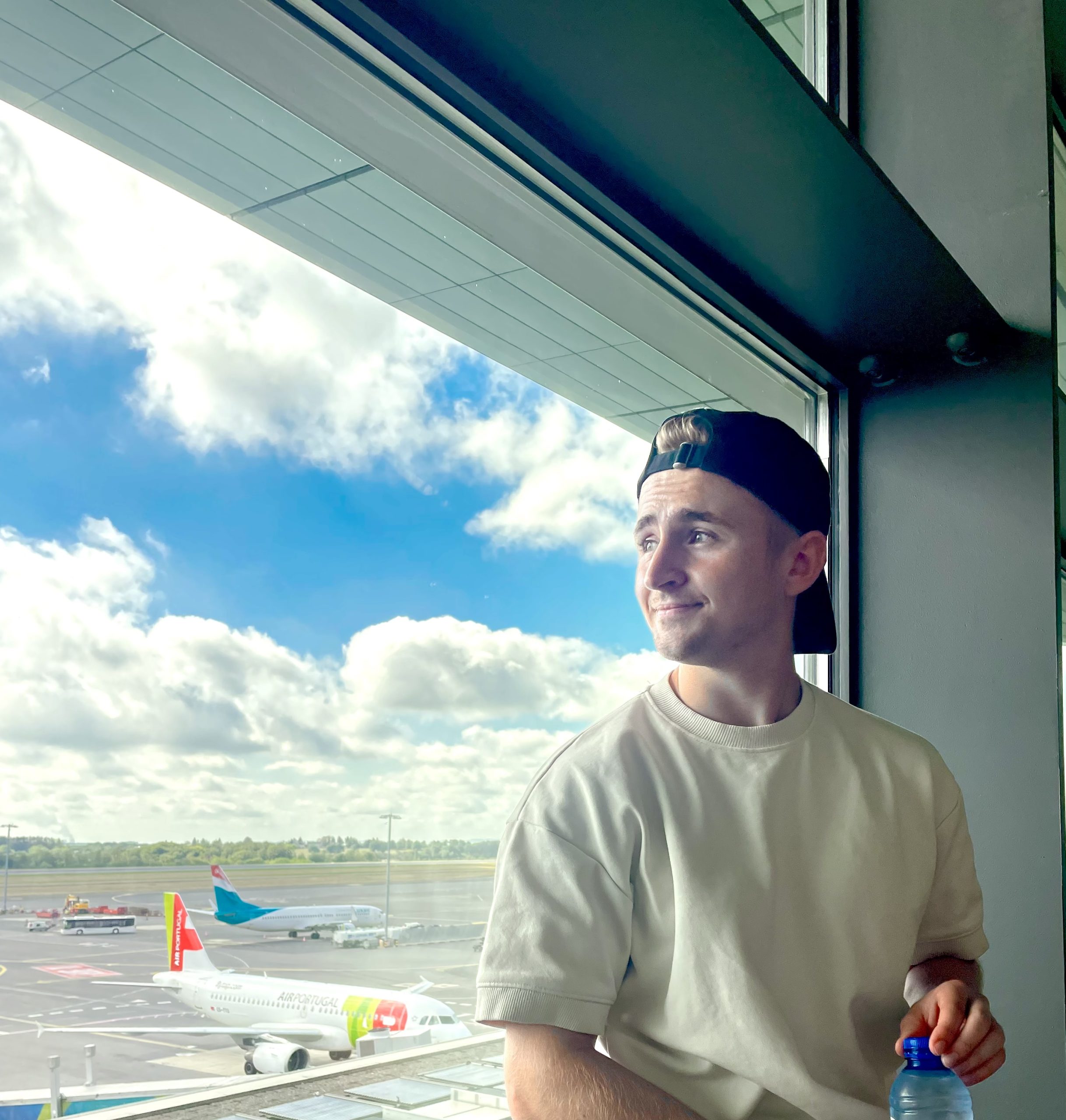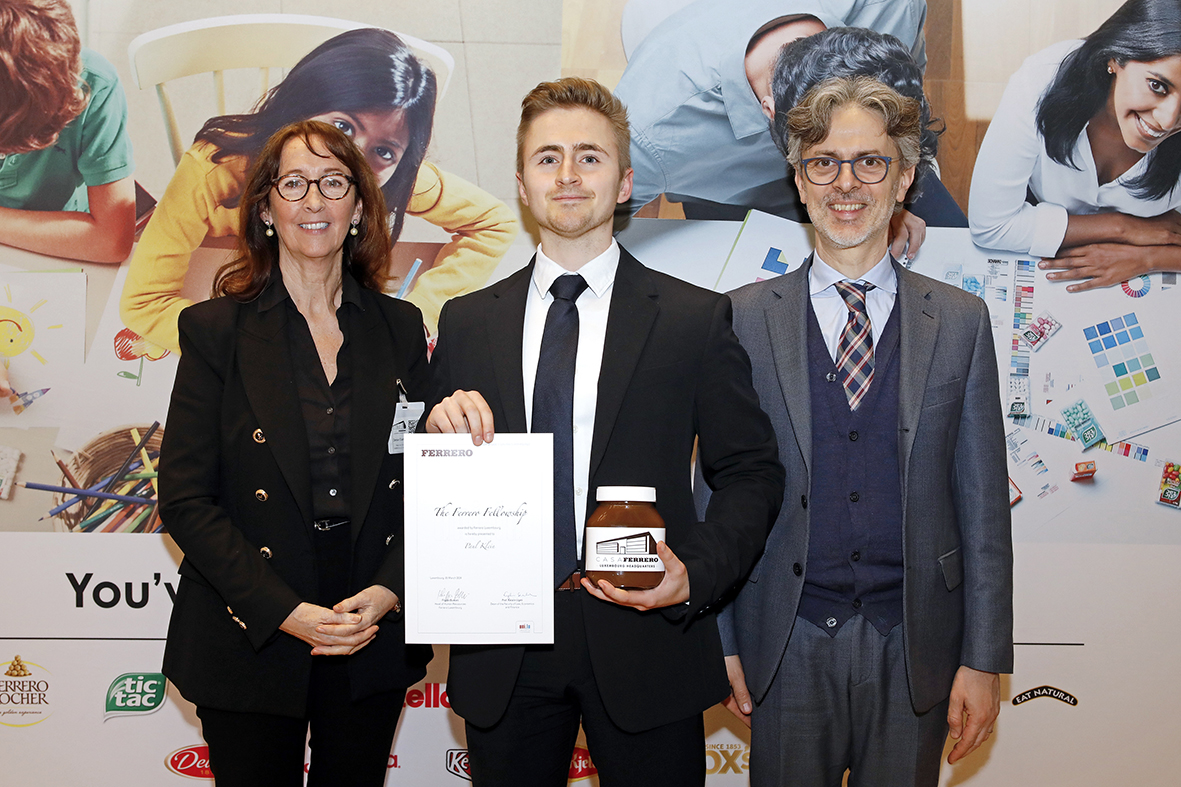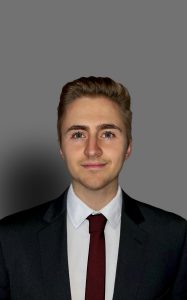Paul Klein, a top 1% Bachelor graduate from one of Germany’s largest universities of applied sciences, chose the University of Luxembourg for his Master’s studies due to its strong connections to the local financial industry and its research-driven environment.
Last year, he completed the Master in Finance and Economics (MFE) before transitioning to Master in Quantitative Economics and Finance (MQEF), from which he is expected to graduate this year. Throughout his studies, Paul gained practical experience through internships at KPMG and J.P. Morgan and was awarded the University Top Student Prize and the Ferrero Fellowship.
Now preparing to join a tech-focused private equity fund in Luxembourg as an Investment Strategy Analyst, Paul will focus on quantitative portfolio optimisation and data-driven investment strategies – the intersection of research and practice he aimed for. We spoke with Paul to learn how his Master’s studies helped him develop the skills and experience needed for a successful career in finance.
Paul, what motivated you to choose the University of Luxembourg for your studies?
Born in Saarbrücken and raised in Trier, I always had a connection to the Grande Région and the University of Luxembourg has been on my radar since my undergraduate studies in Banking and Finance in Cologne already. Beyond the academic content, it was especially the University of Luxembourg’s local industry connections that made it attractive to me. That, combined with the campus location at the heart of the financial centre and extensive resources, especially for research-oriented finance students, offered ideal conditions. Additionally, studying in Luxembourg in a bachelor’s or master’s programme grants time and opportunity to build a local network early on, which has proven greatly beneficial for me and my peers who are pursuing a long-term career in the country.

What initially attracted you to the Master in Finance and Economics?
Besides the University’s network, a key advantage of this Master, in particular, is how holistically it strengthens skills demanded in the industry. It offers the opportunity to become familiar with most techniques applied in corporate finance, asset pricing and portfolio management and mostly covers what finance companies look for in a candidate’s CV. Simultaneously, it deepens understanding of the main theoretical approaches in economics and finance and preserves the option to pivot to an academic career. The elective structure offers a lot of room for individual fine-tuning here.
What did you enjoy most about the Master in Finance and Economics?
I particularly appreciated working intensively on the interfaces of theory and practical application. Among my favourite courses were Modern Portfolio Theory by Prof. Denitsa Stefanova and Econometrics by Prof. Michel Beine. The former is dedicated to bridging the gap between pure MPT and its industry implementations. The latter one offered the opportunity to stay engaged in research with extensive seminars on econometrics in Stata and R and a final paper, in my case on the effect of head coach changes in soccer, using data from the German Bundesliga.
Did the Master in Finance and Economics allow you to gain professional experience in Luxembourg?
In general, the MFE offers an internship period combined with an applied thesis in the fourth and final semester, making professional experience accessible to all enrolled students. As I switched tracks after the second semester, I couldn’t participate in that specific element of the programme. Nevertheless, I took the opportunity to gain some professional experience during the Master in Finance and Economics, first at KPMG and later as a working student at JP Morgan Chase Luxembourg Branch. Combining professional activities and the programme itself requires some planning and willingness to put in the work, but it has been very rewarding for me, especially as I had the opportunity to learn about Luxembourg’s finance industry before fully entering it as a graduate.
Did you receive a scholarship when you joined this Master? If so, could you tell us more about it?
I did, indeed, receive a scholarship from the Italian multinational company Ferrero. The company’s global headquarters is located in Luxembourg, and the scholarship is part of a longstanding partnership between the University of Luxembourg and Ferrero. At the beginning of each winter semester, FDEF students are encouraged to apply. After shortlisting the candidates and one round of interviews, Ferrero decides on scholarship recipients. The scholarship includes financial support of 2,700 EUR after each successful exam period and the opportunity to join Ferrero as an intern in the final semester. Both aspects are immensely helpful. Many students are surprised by how many privately sponsored scholarships are available in Luxembourg, reflecting local companies’ need to actively recruit and the financial strength in the local markets, which also shows in graduate salaries.

From left to right: Prof. Denise Elaine Fletcher, Paul Klein, and Ferrero Luxembourg HR Director Filippo Busceti during the 2024 Ferrero Ceremony
How smooth was the transition from the first year of the Master in Finance and Economics to the second year in the MQEF? What should future students expect during this transition?
To be honest, the transition to the MQEF has been challenging. Not only for me, but also for my fellow students joining from other universities. The programme begins with an intense three-week course on mathematics and statistics, called “MathCamp”, taught by Prof. Christos Koulovatianos and Prof. Gautam Tripathi.
Besides the educational effect of refreshing and introducing core concepts like matrix calculations, dynamic programming, and Bayesian statistics, it serves as an early indicator for students and professors whether one has what it takes to fully master the programme. Coming from a pure finance background, this kickstart was challenging for me. Some of my peers from mathematics and physics were more familiar already with the mathematical “tool set” but were in turn freshly introduced to economic and financial theory to which those tools are meant to be applied. After all, these weeks acclimate students to the Master’s pace quickly and underscore the value of cooperation with peers.
Why did you choose MQEF? Was there someone who encouraged or inspired you to join this Master for your second year (M2)?
Pursuing the MQEF wasn’t my initial plan when I joined the MFE. However, after performing well in mathematically inclined subjects, Prof. Benjamin Holcblat and Prof. Roberto Steri encouraged me to consider a transition to the MQEF. The final decision to do so was based on multiple aspects.
First, the MQEF is fundamentally different in structure and content from the specialisation choices within the MFE. Although internships are possible within the MQEF, they are not mandatory. The MQEF requires an academic thesis even if you go for an internship. I regarded that as more valuable to me personally, as I had already gained some professional experience before and had a clear sense of my career direction. The MQEF is generally more research-focused and provides in-depth coverage of multiple theories in economics and finance. Many lectures are directly based on collections of academic papers and encourage students to read into journal articles and supplement literature. Broadly speaking, the MQEF enables graduates to “build” theoretical frameworks while the MFE teaches them to apply those tools in the industry.
Second, the career paths opened by both programmes overlap but have different focus points. The MQEF has established itself as a “powerhouse” for potential PhD candidates. While each PhD candidate at FDEF has to go through the same application process, there are good chances that an MQEF graduate brings the abilities to be considered for a position. Besides that, top graduates managed to transition to the world’s most recognised PhD programmes, like Stanford University. But even if one does not consider a career in academia, the MQEF opens some doors that might remain closed after less quantitative programmes. Many private equity and trading firms, banks and hedge funds expect applicants to be familiar with complex mathematical concepts, which are rigorously discussed in interview rounds. The competition for positions in R&D or at trading desks is usually tough, but after one year at the MQEF, one is well prepared to keep up with graduates from top universities.
Finally, it is a great opportunity to test the boundaries of what degree of complexity in economics and finance theory one can handle. As students are taken close to the research frontier, it becomes essential to understand the common workhorse theories in depth. If one can keep the pace towards the end of this Master and is willing to sustain this intensity of work for a few more years, the set-up is just right to pursue a PhD or to join a quantitative department in the industry.
Which aspects of the MQEF did you find most rewarding and useful?
While the academic rigour and depth are clear strengths, the most rewarding part for me has been the connections that developed over the past year.
With a limited cohort size, the lectures and seminars allow for a lot of personal exchange with professors, external lecturers and current PhDs, many of them graduates from this very programme. For future PhDs, it’s a good opportunity to dive into Luxembourg’s research landscape that extends beyond the university itself and includes research institutes like LISER or governmental (Luxembourgish and European) institutions.
Moreover, I had the chance to work with some of the most capable and talented future professionals and researchers. The intense collaboration, debates and common challenges have fostered friendships and formed high-performing teams, so networks that pave the way to fruitful cooperation in the future. And for me, this has been the most valuable takeaway from this programme.
You were one of four FDEF students awarded the Top Student Prize in 2023. How did it feel to receive this recognition?
As I didn’t know about the prize before I received the mail inviting me to the award ceremony, I was genuinely surprised at first, but also very grateful. It is worth mentioning that this prize isn’t just a formal recognition of good performance but comes along with a flight ticket and a full scholarship to participate in a three-week summer school in Tokyo during the summer holidays. That gave me the opportunity to visit Japan for the first time. The summer courses at Sophia University, the walks through Tokyo and the hike to the top of Mount Fuji definitely formed a once-in-a-lifetime experience. Interestingly, the Top Student Prize 2024 was granted to one of my brightest fellow students in the MQEF, showing that putting in efforts pays off in many ways in both programmes.
What are your plans after graduation? What kind of career path do you envision for yourself?
For the coming years, I decided to pursue a career in the Luxembourg finance industry, more precisely at a tech-focused private equity fund that was introduced to me by one of my professors. As an investment strategy analyst, I will be part of a research-driven team that develops and refines quantitative approaches for portfolio optimisation and data-based investment choices. Besides that, academically valuable results will be published in peer-reviewed journals. This kind of role sits precisely at the intersection of industry and academia that the MQEF is built around. And of course, this education grants the freedom to fully pivot into either direction, but for me, their touching points are the sweet spots, and I am more than happy that my educational path has brought me there.
What advice would you give to students who want to study these Master degrees at the University of Luxembourg?
My only advice is to make full use of the time, freedom and energy you have during your studies and at the start of a career to work on projects you care about and not to let any of your potential remain unexploited. Independent of the career path envisioned, one can rely on that putting in the work in Luxembourg will pay off, often more than expected and in many ways. And both Master in Finance and Economics and Master in Quantitative Economics and Finance are great points to start.


